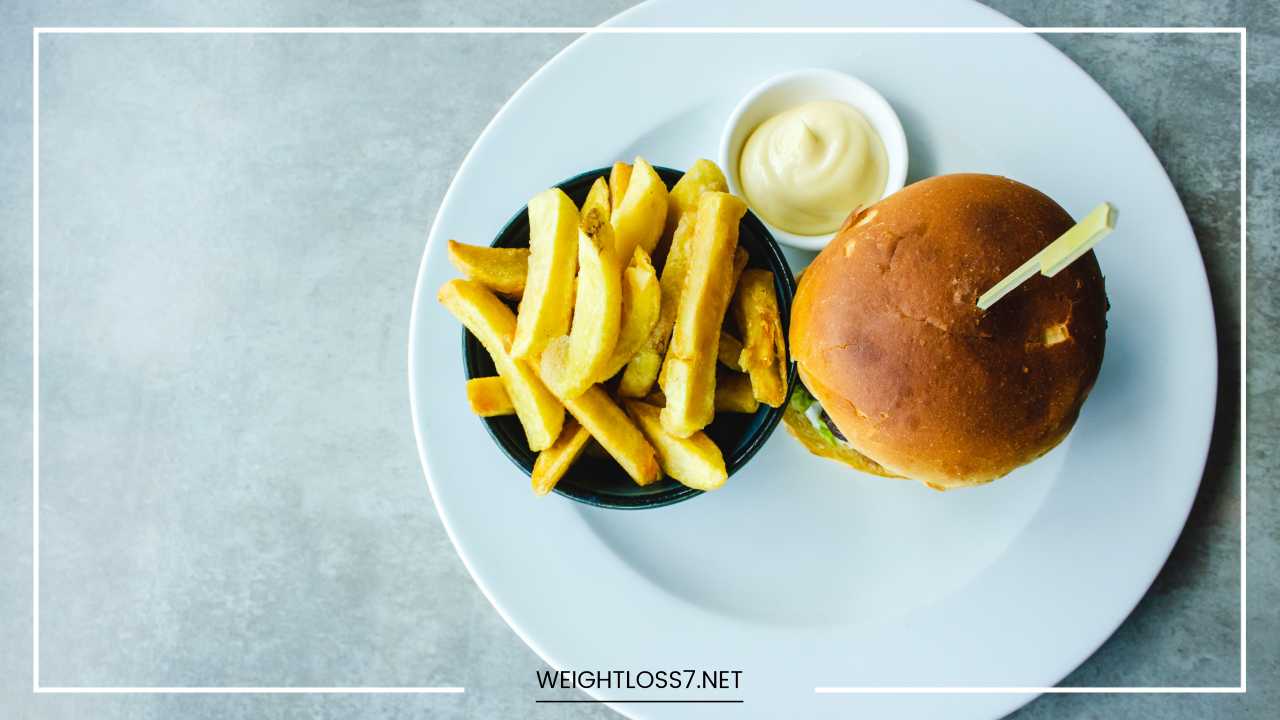Facts About Fat: Debunking Myths and Embracing This Essential Nutrient

Facts About Fat
Facts About Fat: Debunking Myths and Embracing This Essential Nutrient
Fat. The mere mention of the word can evoke a range of emotions, from guilt over indulging in a slice of cake to frustration with seemingly endless diet fads that demonize this vital nutrient.
But the truth about fat is far more nuanced. It’s a complex molecule that plays a starring role in our health, and understanding the different types of fats is key to making informed dietary choices.
The Powerhouse of Fat: Unveiling Its Vital Roles
Fat isn’t just about padding or insulation, although it does excel at those too! Here’s a deeper dive into the crucial functions fat performs in our bodies:
- Energy Champion: Our bodies crave energy, and fat provides a concentrated source, packing a whopping 9 calories per gram compared to the 4 calories per gram offered by carbohydrates and protein. This stored energy is essential for everything from fueling intense workouts to powering our vital organs’ constant activity.
- Vitamin Ally: Certain vitamins, like the fat-soluble A, D, E, and K, rely on fat for proper absorption in our bodies. Including healthy fats in your diet ensures you reap the full benefits of these powerhouse vitamins, crucial for immunity, vision, bone health, and more.
- Building Blocks for Life: Fat is a fundamental building block for our cells, forming the very structure of our nervous system. It also acts as a cushion for our vital organs, protecting them from impact and providing insulation to keep us warm.
- Hormonal Maestro: Fat plays a vital role in the intricate dance of hormones in our bodies. These chemical messengers regulate a vast array of functions, including growth, development, reproduction, and even our mood. From regulating cortisol (the stress hormone) to influencing serotonin (the “happy hormone”), fat is involved in maintaining hormonal balance.
The Diverse Fat Family: Understanding the Good, the Bad, and the In-Between
Not all fats are created equal. Let’s delve deeper into the three main types of fat and their impact on our well-being:
-
The Unsaturated All-Stars: These fats are the darlings of the fat world, further divided into two powerhouses:
- Monounsaturated Fats (MUFAs): Found in abundance in avocados, olive oil, nuts like almonds and cashews, and seeds like sunflower and pumpkin seeds, MUFAs are the heart-healthy heroes. They can help lower “bad” LDL cholesterol, the type that contributes to plaque buildup in arteries, while raising “good” HDL cholesterol, which helps remove LDL cholesterol from the bloodstream. This translates to a reduced risk of heart disease.
- Polyunsaturated Fats (PUFAs): This category boasts two superstars: omega-3 and omega-6 fatty acids. Omega-3s, abundant in fatty fish like salmon, sardines, and mackerel, as well as flaxseeds and walnuts, are known for their anti-inflammatory properties. They may offer benefits for heart and brain health, potentially reducing the risk of heart disease, cognitive decline, and even depression. Omega-6s, found in vegetable oils like sunflower and soybean oil, are essential for growth and development, but moderation is key. An excess of omega-6s can contribute to inflammation.
-
Saturated Fats: The Balancing Act: These fats are typically solid at room temperature and are found in animal products like meat, poultry, and dairy, as well as some plant-based sources like coconut oil and palm oil. While not inherently bad, consuming too much saturated fat can increase LDL cholesterol levels, raising the risk of heart disease. The American Heart Association recommends getting less than 10% of your daily calories from saturated fat.
-
Trans Fats: The Villains We Shun: These artificial fats are formed by processing liquid vegetable oils into a more solid form. They’re often found in fried foods, commercially baked goods like cookies and pastries, and some margarines. Trans fats are the true dietary villains. They significantly raise LDL cholesterol and lower HDL cholesterol, dramatically increasing the risk of heart disease, stroke, and type 2 diabetes. The good news is that many countries, including the US, are actively phasing out trans fats from the food supply.
Building a Balanced Plate: Smart Fat Choices for a Healthy You
Now that you’re familiar with the different types of fat, here are some practical tips to incorporate healthy fats into your diet:
- Limit Saturated Fat Intake: Aim to get less than 10% of your daily calories from saturated fat. This means choosing lean protein sources like skinless chicken or fish, low-fat dairy products, and limiting processed meats and full-fat dairy products.
- Embrace Unsaturated Fats: Make MUFAs and PUFAs regulars on your plate. Enjoy avocados on toast, a handful of almonds as a snack, a drizzle of olive oil on your salad, or incorporate fatty fish like salmon into your meals twice a week. Don’t forget plant-based sources of omega-3s like flaxseeds or walnuts!
-
Become a Label-Reading Pro: Be mindful of hidden fats, especially saturated and trans fats, lurking in processed foods. Look for labels that specify low saturated fat and no trans fats. “Partially hydrogenated oil” on the ingredient list is a red flag for trans fats.
-
Cooking with Heart: Choose healthy cooking methods like baking, grilling, or steaming instead of frying. Frying not only adds unhealthy fats but also increases calorie intake. Baking and grilling are excellent options for preparing lean protein sources and vegetables.
-
Focus on a Balanced Diet: Don’t fall into the trap of fad diets that demonize entire food groups. Aim for a balanced diet rich in a variety of colorful fruits and vegetables, whole grains, lean protein, and healthy fats. This approach promotes overall health and well-being, not just weight loss.
Beyond Weight Loss: Embracing Fat for Overall Health
For decades, fat has been demonized for its link to weight gain. However, focusing solely on fat intake for weight loss can be misguided. Here’s a shift in perspective:
- Fat Promotes Satiety: Unsaturated fats can keep you feeling fuller for longer, reducing cravings and aiding in weight management. The slow and steady release of energy from fat helps control hunger pangs, making it easier to stick to a healthy eating pattern.
- Nutrient Absorption Ally: Including healthy fats with meals ensures you absorb all the essential nutrients from your food, especially fat-soluble vitamins like A, D, E, and K. These vitamins play a crucial role in immunity, vision, bone health, and more.
- It’s All About Balance: A balanced diet that incorporates healthy fats is essential for overall health and well-being. It can improve mood, boost energy levels, support cognitive function, and even contribute to stronger and healthier hair and skin.
The Fascinating World of Fat: Fun Facts to Impress Your Friends!
Fat is more than just a dietary component; it’s a fascinating molecule with some surprising facts:
- The Brain’s Power Source: Did you know that your brain is about 60% fat? Fat is crucial for brain development, function, and memory. MUFAs, in particular, are essential for cognitive health and may help protect against age-related cognitive decline.
- Baby Fat for a Reason: Newborns have a higher percentage of body fat compared to adults. This “baby fat” serves as an energy reserve and helps regulate body temperature.
- Nature’s Anti-Freeze: Hibernating animals, like bears, rely on stored body fat for energy during their winter slumber. This fat provides essential fuel while their metabolism slows down significantly.
- Fat Can Float: Unlike most other body tissues, fat is less dense than water, which is why some people can float more easily than others.
Final Word: Fat – A Friend, Not a Foe
Fat is an essential nutrient that plays a vital role in our health. By understanding the different types of fats and making informed dietary choices, we can build a healthy relationship with fat.
Embrace healthy fats, limit saturated and trans fats, and focus on a balanced diet for optimal health and well-being. Remember, fat is not the enemy; it’s a friend that fuels our bodies and minds!

















